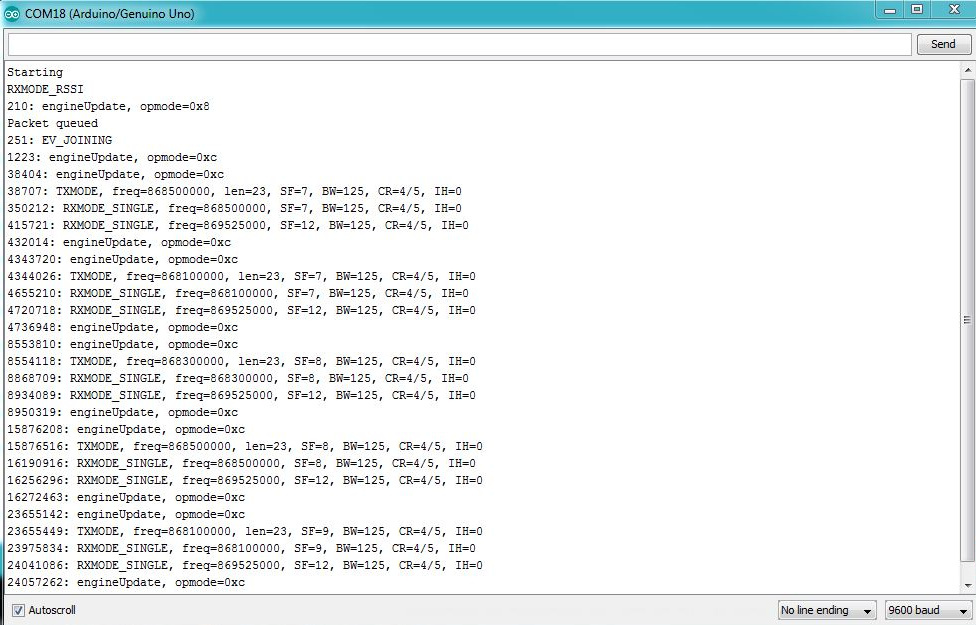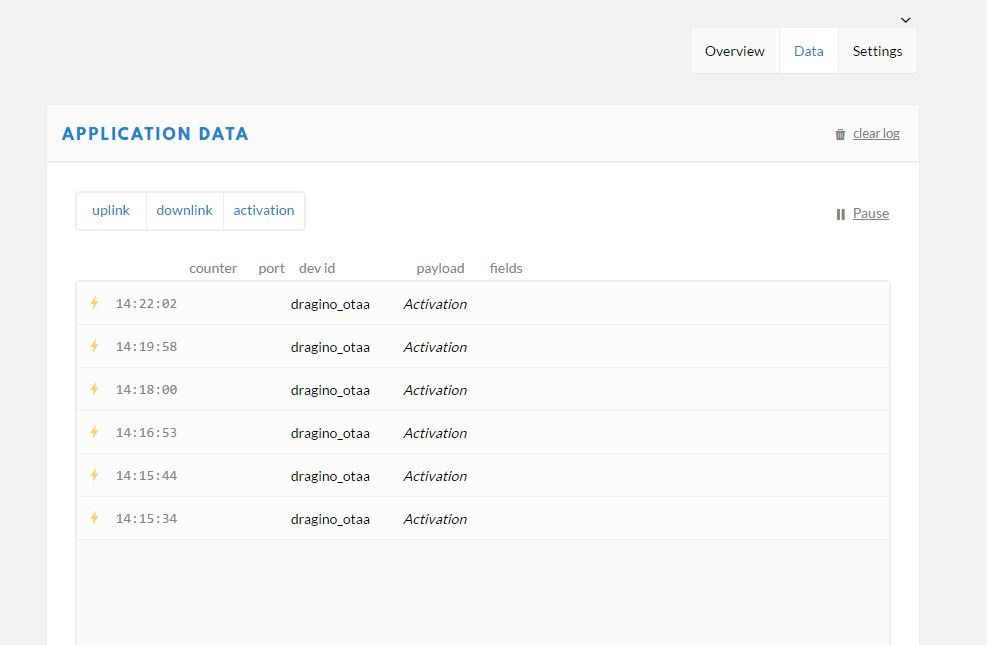Hi all,
I am trying to activate my arduino+dragino_shield v1.3 with OTAA procedure, but it doesn’t work as it should be.
Just to make things crystal clear, I uploaded the basic “ttn-otaa” example provided by the LMIC library. I payed attention in setting the DevEUI and AppEUI in LSB, whereas the AppKey in MSB, as advised in the code itself. The packets are sent to a close by Kerlink Wirnet Station.
The same node registered with ABP works just fine, and I can see packets back and forth the TTN back-end server with no problem at all.
After sending a join request, actually, I get the DevAddr and authentication keys (NwkSKey, AppSKey) from the server since I can see them in the TTN console, but I have feeling like my node can’t successfully use them to start sending my “Hello World” payload. In fact, after few minutes a new join request is sent and I get new keys without going any further in the data exchange process.
To give you the all picture, I post few screenshots of the console status at this time, as well as the response of the Arduino’s serial monitor:
End Node keeps sending join requests
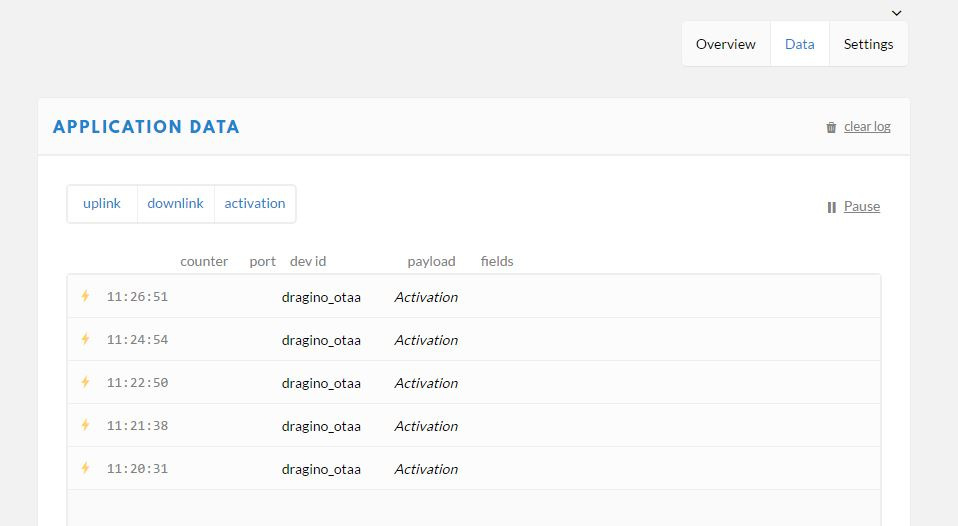
End-node apparently activated (TTN shows all keys)
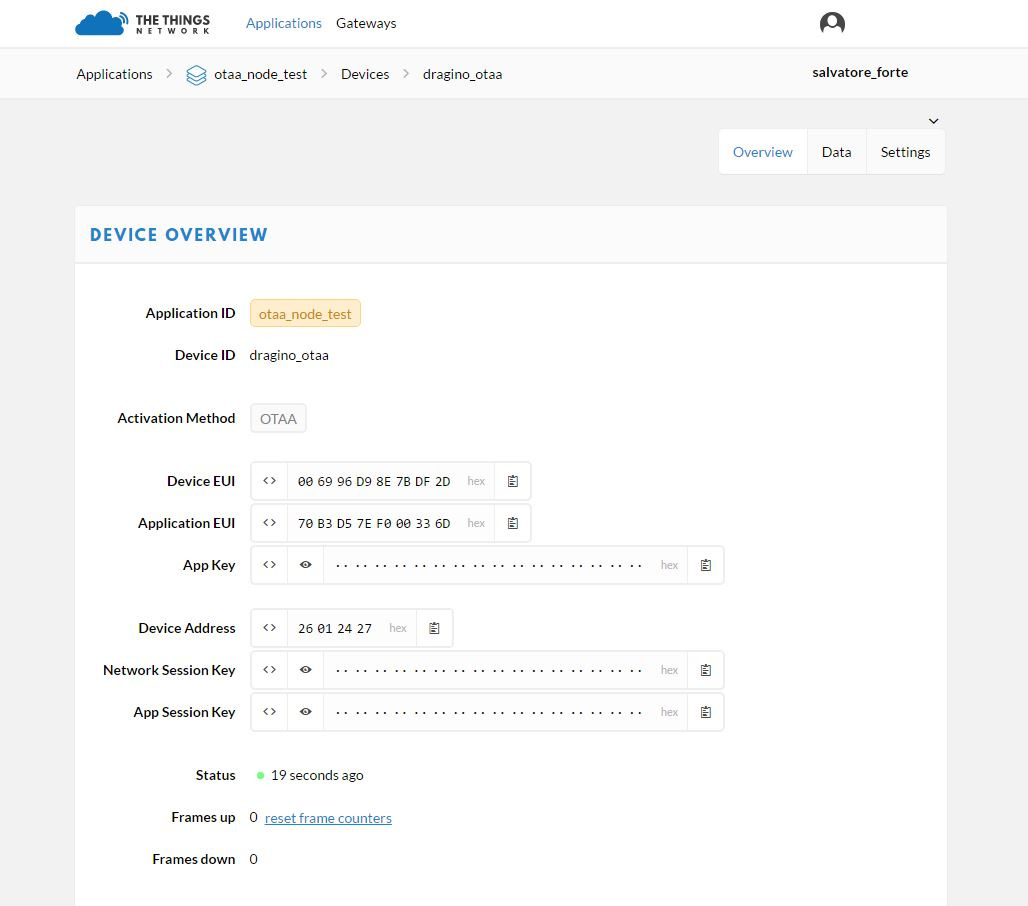
Arduino Serial Monitor (stuck in join procedure)
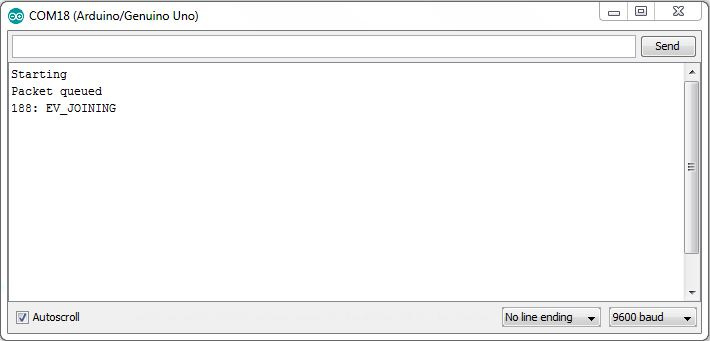
I hope that someone that has experienced the same problem can give me a piece of advice about how to fix it!
Many Thanks!
Salvatore
